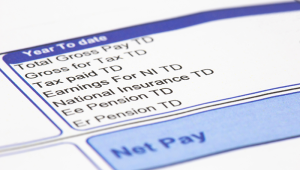By Lucy Phillips
15 December 2010
A fresh row has broken out over the scale of the deficit in the Local Government Pension Scheme.
An analysis of the LGPS in England, published today, suggests its shortfall has more than doubled to £100bn, up from £42bn when the last official valuation was carried out in 2007.
The estimate, by independent pensions consultant John Ralfe, was based on the published accounts of 60 of England’s pension administering authorities. Their assets were calculated to total £132bn, versus liabilities of £232bn.
The LGPS has 4 million members, including 1.7 million current workers. It is a single funded scheme but administered through 81 different regional pension funds.
Ralfe criticised pension authorities for investing too heavily in equities, advocating index-linked gilts as a better alternative.
But CIPFA condemned the report, saying it was based on figures from the Financial Reporting Standard 17 accounting standard, which took only a snapshot position of the pension liabilities.
Bob Summers, head of the CIPFA pensions panel, told Public Finance the forthcoming LGPS actuarial valuation would provide a better guide, taking into account a long-term view of the scheme’s affordability and sustainability and ignoring short-term fluctuations in market values. Due to be published early next year, the official valuation will also be used for revising employer contribution rates.
Summers said: ‘The information John Ralfe has presented is highly misleading. There is not a black hole in local authorities’ pension funds. We are going through a process of [actuarial] review at the moment.’
Summers also refuted the accusations that LGPSs were too reliant on equities, saying it varied from fund to fund and each one took expert advice on its investments.
Mike Taylor, chief executive of the London Pension Funds Authority, said today’s numbers should not be taken at face value. He urged people not to panic. ‘This measure provides us with a snapshot view of LGPS liabilities that stretch out literally decades into the future, based on today’s interest rates,’ he said. Taylor added that the deficit would rise and fall on a daily basis according to interest rates, making the analysis ‘frankly not sensible’.
According to Ralfe’s report, How worried should taxpayers be about local government pensions?, the liabilities are likely to be reduced by £20bn as a result of the government’s move to increase pensions in line with the consumer price index rather than the higher retail price index. But this still leaves a £80bn black hole that would require a 70% increase in council contributions over 25 years to fill.
Ralfe told PF that local authority pension funds were failing to develop plans to address the problem ‘other than keeping their fingers crossed and hoping the massive equity bet will pay off’.
He added: ‘My concern as a taxpayer is that there is a degree of head in the sand-ness which underestimates the real cost of providing pensions and the real risk of providing pensions. It’s exactly what we had in the private sector up until ten years ago,’ he said.
Unions also rejected Ralfe’s report, claiming the LGPS deficit was in fact somewhere between £30bn and £40bn and it had a positive annual cash flow of more than £4bn on top of the £132bn assets.
Brian Stratton, GMB national secretary for public services, said: ‘In effect, Ralfe is saying the equivalent of taking a snapshot of your personal finances part way through a mortgage – it looks like you’ve got an unaffordable debt but the reality is to look at the long term and whether you can meet that debt. That’s what actuaries do in the LGPS and the managers of the pension funds set the contributions accordingly.’
Gail Cartmail, assistant general secretary for public services at Unite, called it a ‘back-of-an envelope calculation’.
Changes to the LGPS are currently being considered in an independent review by Lord Hutton, a former Labour minister commissioned by the coalition government to review public sector pensions. His interim report, published in October, suggested that members of the LGPS should make higher contributions.



















